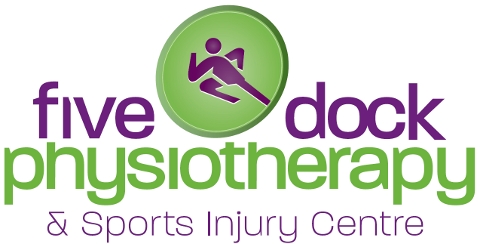Sciatica
Sciatica Treatment Lilyfield
Five Dock Physiotherapy & Sports Injury Centre proudly offer quality sciatica treatment to residents in Lilyfield and surrounding suburbs.
Typically, sciatica is made worse by bending, lifting, sneezing and coughing. Sciatica is a common problem for manual workers, sedentary office workers and is particularly prevalent during pregnancy.
Five Dock Physiotherapy & Sports Injury Centre proudly offer quality physiotherapy care to assist with sciatica. For enquiries, please call 02 9713 2455 or Book Online.
What causes Sciatic pain?
Sciatica is caused by pressure on the sciatic nerve – a very large nerve that originates from the lower lumbar spine and travels through the buttock into the leg as far as the back of the knee.
Pressure on the Sciatic nerve can result from a number of reasons including:
- piriformis syndrome (tightness of the piriformis muscle in the buttock that compresses the sciatic nerve)
- spinal misalignments, vertebral dysfunction
- herniated disc, disc prolapse
- osteoarthritis
- poor posture – wearing high heels, prolonged sitting, poor mattress
- poor lifting technique and poor bending habits
- spinal compression due to osteoporosis


Diagnosis
Since there are many disorders that can cause sciatica, your physiotherapists’ first task is to determine the exact cause of your sciatic nerve interference.
Physiotherapy treatment always begins with a thorough history, spinal, orthopaedic and neurological examination. Special diagnostic imaging investigations such as X-ray, CT and MRI scans may also be required to accurately diagnose your sciatica.
Treatment
As sciatica is due to pressure on the sciatic nerve, it stands to reason that treatment involves removing this pressure. Your physiotherapy treatment aims to achieve this by reducing nerve pressure caused by poorly moving spinal joints as well as easing muscular tension in the lower spine, buttock and leg.
This is achieved by using a combination of the following techniques:
- Spinal mobilisations
- Massage therapy and trigger point therapy
- Stretching tight muscles, joints, tendons and ligaments
- Ultrasound and other electrical stimulation devices
- Advice in relation to how to minimise pressure and irritation of the sciatic nerve
In addition to this, you will be given a series of home stretching exercises and asked to apply ice and heat to help aid your recovery.
Suffering from sciatica? Get in touch so that we can treat your symptoms early before they get worse! Please contact us to begin your care today!

